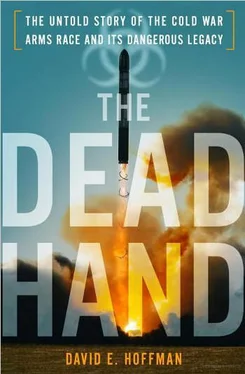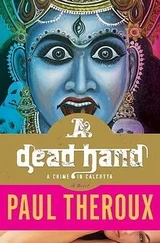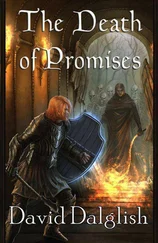15 David Remnick, “Young Gorbachev,” Washington Post , p. B1, Dec. 1, 1989.
16 The Soviet Union was not a rule-of-law state in the Western sense. But the law faculties were often used to groom future recruits for service in diplomacy, security services and party work.
17 Gorbachev and MlynááY, Conversations , p. 18.
18 The full title was History of the Communist Party of the Soviet Union (Bolsheviks), Short Course , 1939.
19 Brown, p. 39.
20 In the Soviet system, the procuracy was more than just a prosecutor. The office also had an accountant’s auditing function and served as a watchdog for the party.
21 Ever since the Bolshevik revolution, the Communist Party leadership strove to keep the restiveness of youth in check through Komsomol. See Steven L. Solnick, Stealing the State: Control and Collapse in Soviet Institutions (Cambridge: Harvard University Press, 1999).
22 Raisa Gorbachev, pp. 93–99.
23 Gorbachev, Conversations , p. 38.
24 Robert G. Kaiser, Why Gorbachev Happened: His Triumphs and His Failure (New York: Simon & Schuster, 1991), p. 41.
25 Time magazine editors, Mikhail S. Gorbachev: An Intimate Biography (New York: Time Inc., 1998), p. 98.
26 Brown, p. 45.
27 Gorbachev, Conversations , p. 47.
28 Gorbachev, Conversations , pp. 42–43.
29 Gorbachev succeeded Fedor Kulakov, who died July 17, 1978. Kulakov, who was previously first secretary in Stavropol, had been a mentor. Gorbachev delivered a eulogy for him in Red Square. However, the delay between his death in July and Gorbachev’s elevation in November may have meant internal wrangling over the appointment.
30 Volkogonov, p. 446, notes that Gorbachev’s assignment was doomed; decrees were never going to solve agricultural problems that dated back to Stalin’s disastrous campaign against the peasants.
31 The most significant source of unorthodox thinking was in Novosibirsk, Siberia, where an outspoken reform economist, Abel Aganbegyan, had come up with a candid and devastating critique of the Soviet economy. A colleague, Tatyana Zaslavskaya, a sociologist, prepared a landmark internal paper challenging the entire structure of the Soviet economy, which was debated at a 1983 conference in Novosibirsk. See Tatyana Zaslavskaya, The Second Socialist Revolution: An Alternative Soviet Strategy (Bloomington: Indiana University Press, 1990).
32 Robert D. English, Russia and the Idea of the West: Gorbachev, Intellectuals and the End of the Cold War (New York: Columbia University Press, 2000), pp. 172–173.
33 Narodnoye Khozyaistvo SSSR v 1983 g . [Agriculture in the USSR in 1983] (Moscow: Finances and Statistics, 1984), p. 269.
34 Henry Kreisler, “Conversation with Alexander Yakovlev,” Nov. 21, 1996, Conversations with History, Institute of International Studies, University of California, Berkeley. Also, English, p. 184.
35 English, p. 190.
36 Eduard Shevardnadze, The Future Belongs to Freedom (New York: Free Press, 1991), pp. 23, 37.
37 Yegor Ligachev, Inside Gorbachev’s Kremlin (New York: Pantheon Books, 1993), p. 58.
38 Chernyaev diary, Feb. 26 and March 2, 1985.
39 Alexander Yakovlev, Sumerki (Moscow: Materik, 2003), pp. 459–461.
40 Brown, Seven Years That Changed the World , p. 32.
41 March 11 comments from minutes of the Politburo meeting, the Library of Congress, Washington, D.C., Volkogonov Collection, Reel 17, Container 25.
42 Georgi Shakhnazarov, Tsena Svobody: Reformatsiya Gorbacheva Glazami yevo Pomoshnika (Moscow: Rossika-Zevs, 1993), pp. 35–36.
CHAPTER 9: YEAR OF THE SPY
1 Robert M. Gates, From the Shadows: The Ultimate Insider’s Story of Five Presidents and How They Won the Cold War (New York: Simon & Schuster, 1996), p. 329.
2 Reagan diary, April 19, 1985. Reagan acknowledged in his memoir, “I can’t claim that I believed from the start that Mikhail Gorbachev was going to be a different sort of Soviet leader.” Reagan, An American Life (New York: Simon & Schuster, 1990), p. 614.
3 Reagan, An American Life , pp. 615–616.
4 Reagan diary, March 20, 1985. In his memoir, Reagan said he told aides “we’d have to be as tough as ever in dealing with the Soviets” but “we should work hard to establish channels directly” between himself and Gorbachev, p. 615.
5 According to Matlock, Nicholson had strayed into a restricted area. The United States “was given a version that mixed fact with fiction to place the responsibility on Nicholson, not on the Soviet sentry. The official Soviet explanation was that Nicholson had entered a clearly marked prohibited area, was illegally photographing a Soviet military installation, and when spotted refused the sentry’s order to halt. Instead, he tried to escape and was therefore shot. It was this inaccurate version that convinced Weinberger and Reagan that the shooting had been deliberate.” Matlock, Reagan and Gorbachev , pp. 112–113.
6 George Shultz Turmoil and Triumph: My Years as Secretary of State (New York: Charles Scribner’s Sons, 1993), p. 537.
7 Reagan, An American Life , p. 617.
8 In a letter to Gorbachev April 30, 1985, Reagan said the Nicholson incident was clouding efforts to improve relations. Shultz, p. 537.
9 Gates, address to Boston Committee on Foreign Relations, Nov. 28, 1984.
10 Shultz, p. 507.
11 “Gorbachev, the New Broom,” Office of Soviet Analysis, Directorate of Intelligence, Central Intelligence Agency, 13 pp., June 1985, released to author under FOIA, partially redacted.
12 Gates, pp. 331–332. Gates said in his memoir that Casey’s cover note went too far, and was “transparent advocacy” added on top of intelligence analysis. Casey “did not offer any balance or pretense of objectivity,” Gates said. But Gates also said that “many of us in CIA” agreed with Casey’s appraisal of Soviet motives and strategy.
13 Anatoly Chernyaev, My Six Years with Gorbachev (University Park, Pa.: University of Pennsylvania Press, 2000), p. 25.
14 Alexander Yakovlev, “On Reagan,” State Archive of the Russian Federation, Moscow. Yakovlev Collection. Fond 10063, Opis 1, Delo 379. Translated by Svetlana Savranskaya.
15 Gorbachev, Ponyat’ Perestroiku (Moscow: Alpina Bizness Books, 2006), p. 33.
16 Gates speech, Texas A&M University, Nov. 19, 1999.
17 Except where noted separately, this account of the Ames case is based on “An Assessment of the Aldrich H. Ames Espionage Case and Its Implications for U.S. Intelligence,” Senate Select Committee on Intelligence, Nov. 1, 1994, parts 1 and 2.
18 Victor Cherkashin, who was deputy resident then, said the Ames letter offered information on CIA operations and included “a small sheaf” of documents that seemed unremarkable, mostly about U.S. intelligence on Soviet naval forces in the Middle East. Victor Cherkashin with Gregory Feifer, Spy Handler: Memoir of a KGB Officer (New York: Basic Books, 2005), p. 16.
19 Except where noted separately, this account of Gordievsky’s actions is based on Next Stop and author’s interview.
20 Barry G. Royden, “Tolkachev, a Worthy Successor to Penkovsky,” Center for the Study of Intelligence, CIA, Studies in Intelligence, vol. 47, no. 3. Also, James L. Pavitt, deputy CIA director for operations, remarks to Foreign Policy Association, June 21, 2004.
21 Milt Bearden and James Risen, The Main Enemy: The Inside Story of the CIA’s Final Showdown with the KGB (New York: Random House, 2003), p. 37.
22 Bearden and Risen, p. 12.
Читать дальше












